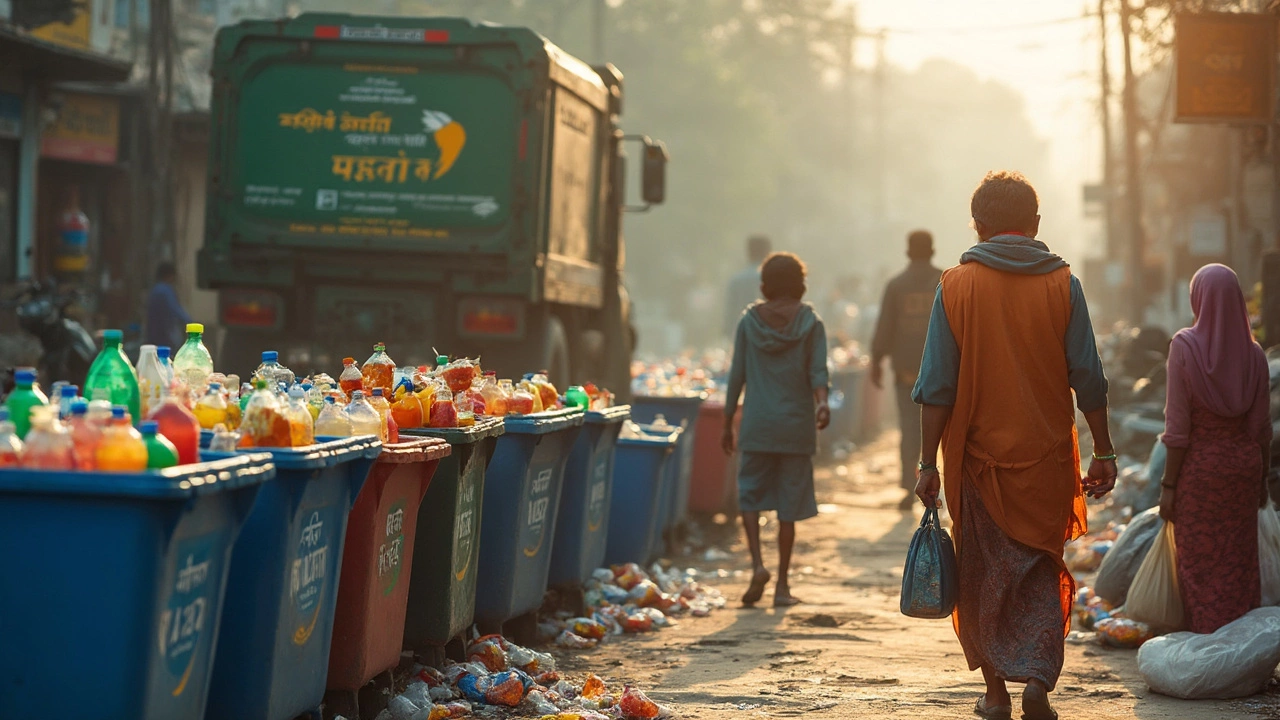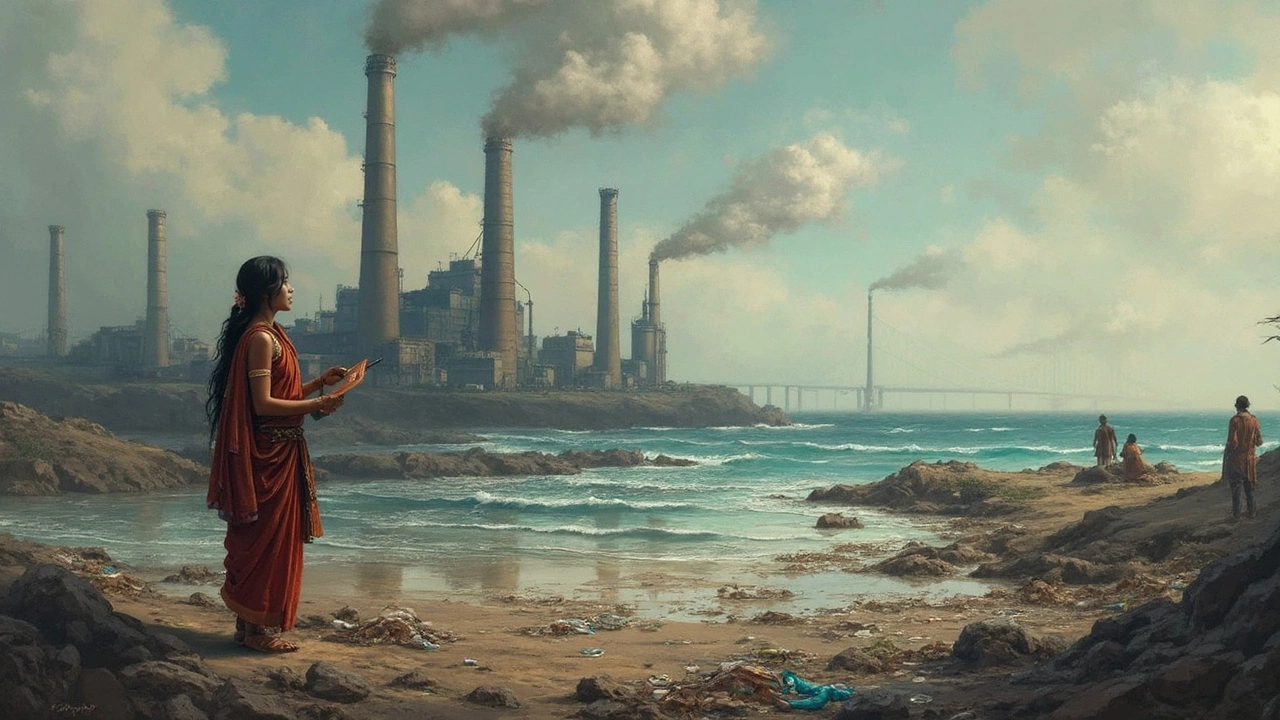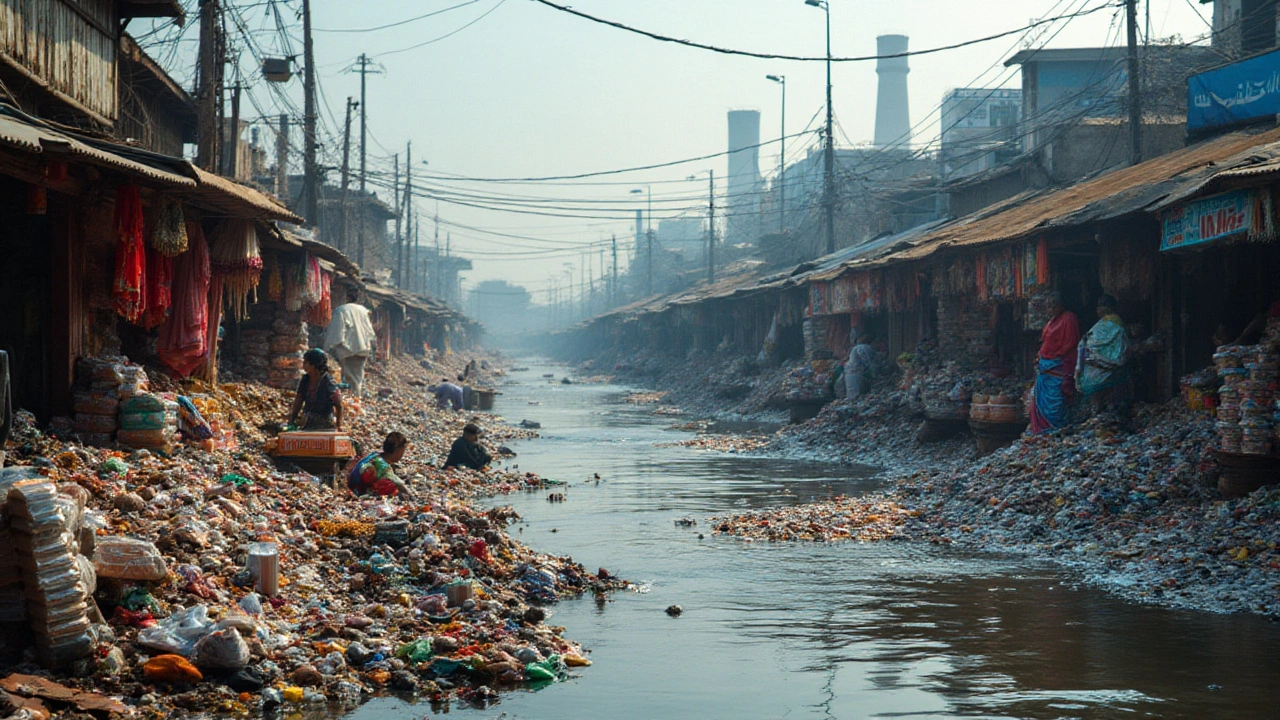Plastic Pollution: What It Is and Why It Matters
Every time you toss a water bottle or a shopping bag, that piece of plastic joins a massive global problem. Plastic doesn’t disappear quickly; it hangs around for decades, breaking into tiny pieces that end up in oceans, soils, and even the air we breathe. The result is a chain reaction that harms wildlife, contaminates food, and costs economies billions each year.
Why Plastic Lingers for Decades
Most common plastics—like PET bottles, polypropylene containers, and polystyrene foam—are engineered to resist decay. In a landfill, a typical plastic bottle can take 450 years to decompose. In the ocean, sunlight and waves shred it into microplastics, particles smaller than five millimeters, that are nearly impossible to clean up. These microplastics get eaten by fish, birds, and even plankton, moving up the food chain to end up on our plates.
Besides the visual mess, plastic releases harmful chemicals as it ages. Additives such as BPA, phthalates, and flame retardants leach into water and soil, disrupting hormones in humans and animals. Studies have linked exposure to these chemicals with reproductive issues, obesity, and certain cancers. So the problem isn’t just about trash—it’s a health hazard.
Everyday Actions to Reduce Plastic
Good news: you can make a real difference without spending a fortune or turning your life upside down. Start by swapping single‑use items for reusable ones. A stainless‑steel water bottle, a cloth grocery bag, and a metal straw last years and cut out dozens of plastic pieces each month.
When you shop, choose products with minimal packaging or packaging made from recyclable materials like cardboard or glass. If you can’t avoid packaged goods, separate the plastic from other waste and put it in the right recycling bin—don’t just toss everything together, which often ends up in landfills.
Support brands that use biodegradable or compostable alternatives. Those are usually made from plant‑based materials that break down in months, not centuries. Also, look for local refill stations for items like detergent or shampoo; refilling cuts down on plastic bottles dramatically.
Finally, spread the word. A quick chat with friends or a social media post can inspire others to make the same swaps. Community clean‑up events are another hands‑on way to remove plastic from streets and waterways while meeting people who care about the same issue.
Plastic pollution feels overwhelming, but every small change adds up. By choosing reusable items, recycling correctly, and supporting eco‑friendly products, you help shrink the plastic pile and protect the planet for the next generation.


